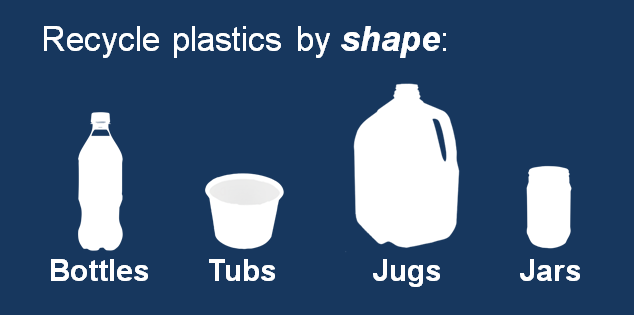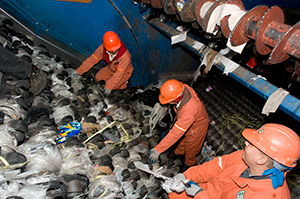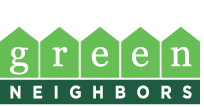
Focus on the shape, not the type of plastic
When deciding if you should put plastic into your recycling, the size and shape are the most important. Clark County’s recycling sorting machines are designed to expect certain sizes and shapes, but not specific plastic types.
Clark County recycling accepts plastic bottles, tubs, jugs and plastic jars larger than the size of your fist. Items smaller than your fist fall through the sorting machine equipment and are disposed of as garbage.
Items must be empty, clean and dry to be properly recycled (no food residue).
Plastics numbers (resin codes)
Commonly seen as a triangular symbol with a number in the center, the resin code is often confused with the recycling symbol. The Clark County recycling system does not base recycling eligibility off of resin codes. The only way we determine the recyclability of a product in Clark County is by using size and shape guidelines.
Why?
 The Material Recovery Facility (MRF) that sorts recycling is designed to recognize objects. The MRF is not designed to be able to identify the material an object is made from. Because of that, objects that are not accepted can cause havoc on the machines and shut down the recycling process. Some of these items are recyclable elsewhere, but since they were improperly placed in a curbside recycling cart they now will end up at the landfill. Improperly placed items can also contaminate good recyclables causing them to go to the landfill as well.
The Material Recovery Facility (MRF) that sorts recycling is designed to recognize objects. The MRF is not designed to be able to identify the material an object is made from. Because of that, objects that are not accepted can cause havoc on the machines and shut down the recycling process. Some of these items are recyclable elsewhere, but since they were improperly placed in a curbside recycling cart they now will end up at the landfill. Improperly placed items can also contaminate good recyclables causing them to go to the landfill as well.
A common problem plastic is plastic bags, which should never go in your home recycling. Plastic bags clog the screens on the recycling sorting machines. This forces the entire line to shut down and workers have to manually enter the dangerous machines to hand cut out these contaminants.


